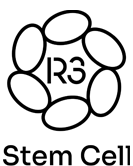Cancer Prevention
Natural killer (NK) cell immunotherapy is a promising approach in cancer treatment because NK cells are a type of immune cell capable of targeting and destroying tumor cells. For individuals who have a genetic predisposition for cancer, NK cell immunotherapy is a fantastic option to minimize cancer occurrence.
Here’s how it works to prevent or treat cancer:
Natural Cytotoxicity of NK Cells
NK cells can recognize and destroy cancer cells without prior sensitization, unlike T cells, which require antigen presentation. This innate ability stems from their capacity to:
- Detect stressed cells: Cancer cells often express stress-induced ligands (e.g., MICA, MICB) on their surface, which NK cells recognize.
- Identify reduced MHC-I expression: Many cancer cells downregulate MHC-I molecules to evade T cells, but NK cells are triggered to attack when MHC-I levels are low.
Enhancing NK Cell Activity in Therapy
NK cell immunotherapy leverages these properties and enhances them through various strategies:
- Expansion and Activation of NK Cells: NK cells are collected from a patient or donor, expanded, and activated in the laboratory using cytokines like IL-2 or IL-15. These enhanced NK cells are then infused back into the patient to boost the immune response. R3 works with donor NK cells in Mexico, and autologous NK cells in Pakistan.
Advantages in Cancer Prevention and Treatment
- Broad Targeting: NK cells can attack a wide variety of tumor cells without relying on tumor-specific antigens.
- Rapid Response: Their innate nature allows for immediate action against cancer cells.
- Reduced Risk of Graft-versus-Host Disease (GVHD): NK cells from donors are MUCH less likely to cause GVHD compared to T cells in allogeneic therapies.
Challenges and Future Directions
While NK cell therapies show promise, challenges include:
- Short in vivo lifespan of NK cells. The NK cells live for approximately three weeks.
- Tumor microenvironment suppression (e.g., secretion of immunosuppressive cytokines like TGF-β).
By boosting the immune system’s natural ability to fight cancer, NK cell immunotherapy holds significant potential to prevent cancer progression and recurrence, especially in high-risk individuals or as part of combination therapies.
